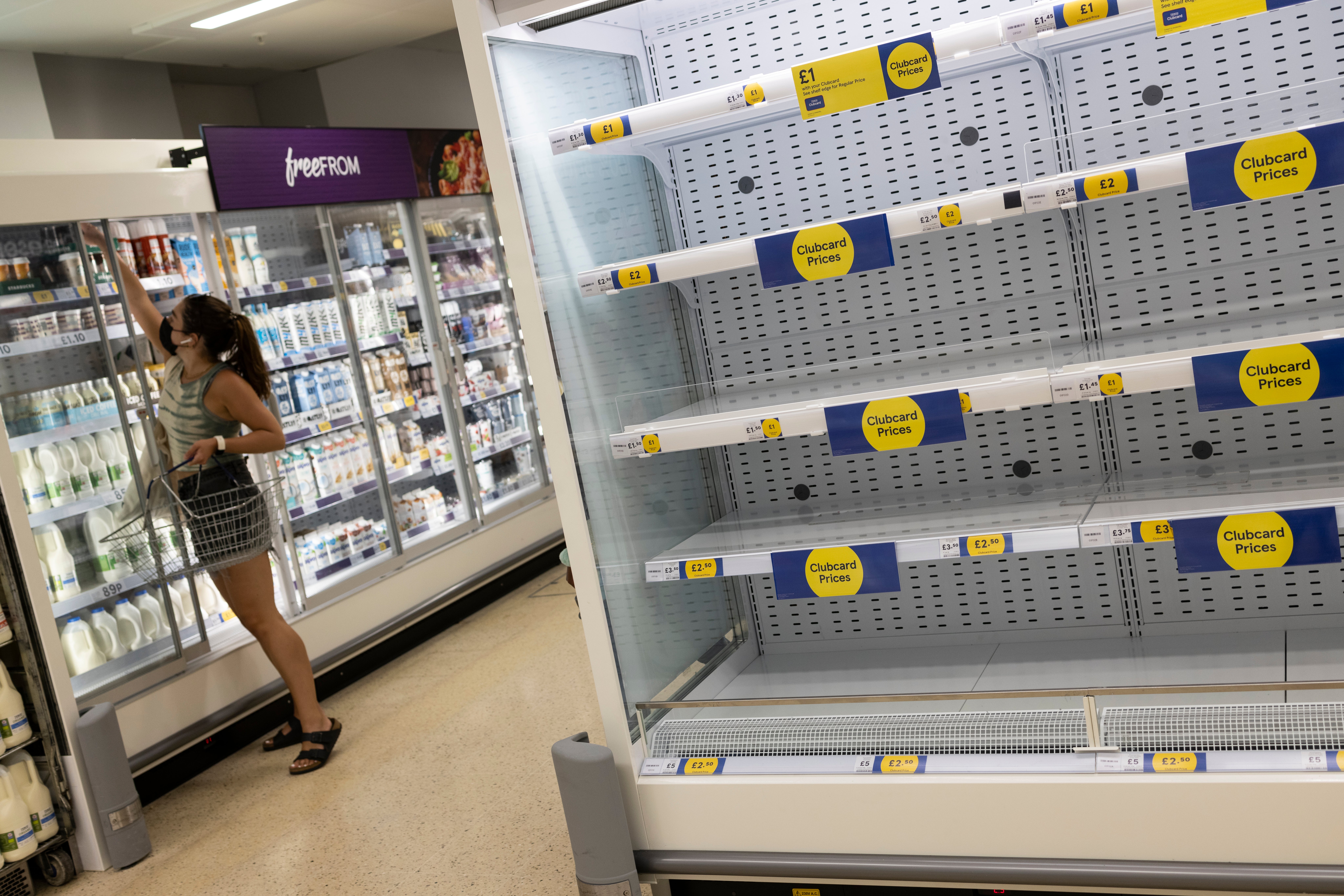A very British phenomenon – inflation is the price we will pay for Brexit
Higher interest rates and automation are likely to result from artificial wage hikes, argues Sean O’Grady


One of the strangest consequences of Brexit may turn out to be the return of that old British disease – endemic price inflation. Perhaps “project fear” should have made more of this back in 2016, but at any rate the exodus of EU workers from the UK labour market has resulted in well-publicised shortages – of lorry drivers, in the care sector, in agriculture and much else. These, in turn, have created shortages of other products, including, as The Independent reports, Ikea furniture, building materials, milk, groceries and even beer, ironically in pro-Brexit Wetherspoon establishments. It all means higher costs and, thus, higher prices or lower profit margins (which will hurt investment and future growth in productivity and prosperity).
As the British eventually learned to their cost back in the 1970s, when inflation eventually topped out at 27 per cent and was rarely lower than 10 per cent a year, one person’s pay rise is another person’s price rise. When prices rise there is increased pressure on employers to raise pay rates still further, passing on the extra cost in price rises (or smaller portions or less well equipped, stingier product offerings). A handsome increase in the wage packet is soon eroded by a concomitant rise in prices, leaving earnings in real terms stagnant, but harming competitiveness and distorting the economy. Profitability also usually suffers.
There are other factors driving prices higher. A shortage of semiconductors, for instance, is creating an unusual shortage of new and used cars, again pushing prices up, and the same will go for other electronic and consumer items, including children’s toys as we enter the Christmas season. Shipping containers, also disrupted by Covid, are also pushing costs of transportation up. These should wash out in the longer term, but with the simultaneous and (unique to Britain) hike to Labour costs the inflationary danger is more pronounced that it would usually be. In the non-traded sector, such as care homes and the NHS, the pressure will emerge in overspent hospital and care budgets, with the danger of spending cuts elsewhere, tax hikes or increased public borrowings.
The danger of a wage-price spiral in the UK hasn’t materialised for about 30 years, after the painful experience of ERM membership finally squeezed inflation out of the system. Since then there have been plenty of potentially inflationary economic shocks – raw material costs, weak sterling, the banking crisis, and Covid – but none has seriously threatened to ignite that wage-price spiral, even as monetary policy (lower interest rates and creating new money) was loosened by the Bank of England. They were more like one-off shocks, events rather than a process, and the Bank was able to “see through” prospective increases in the price level as essentially temporary and short-to-medium term.
Now, it may be different. If severe labour shortages in certain sectors start to pull wage rates in the economy up more generally, then the pressures on costs and prices will rise proportionately. If wages are around 70 per cent of costs in the economy, and they start rising at historically high rates, then they can only be restrained in one of two ways in the short term.
The labour shortage can be immediately redressed by relaxing the current restrictions of freedom of movement of workers, either from the nearby EU or from further afield. However that would beg the question of the use of Brexit and be politically difficult if not impossible. Another consequences would be that cheaper goods and services would be bought from abroad, but this too is hardly a sustainable strategy to a step change in UK cost competitiveness.
Second, more conventionally, the Bank of England could choke off the wage-price spiral by depressing demand through higher interest rates. The Bank would be reluctant to do so, given the precarious recovery from Covid, but the pressures are undoubtedly intensifying. This would be certainly be bad news for the homeowners (bigger mortgage repayments in due course and weaker property values), but also for businesses and anyone in need of credit. The recovery in the jobs market would be dampened down, and, presumably, wage pressures relieved. There would be pain. Politically, however, the blame could be directed towards the Bank of England; but there’d also be significantly more pressure to get the public finances also under control and perhaps for some sort of return to austerity. That would spell real trouble for the Conservatives’ prospects at the next election, if their perceived reputation for economic competence disappears in a welter of stagflation (inflation with low growth and unemployment).
In the longer run, the chances are that if the cost of labour as a factor of production goes up relative to capital, then machinery will tend to take over from human beings – mechanisation, automation, robots and artificial intelligence. An obvious example would be the more rapid displacement of HGV drivers by autonomous driving trucks, and clerical workers in banking, say, being replaced by “cyber assistants” on websites, just as checkout workers have been replaced by self-checkout booths. It has to be admitted, and borne very much in mind, that such machinery doesn’t ever think it deserves a pay rise, and tends not to cause inflation.



Join our commenting forum
Join thought-provoking conversations, follow other Independent readers and see their replies
Comments